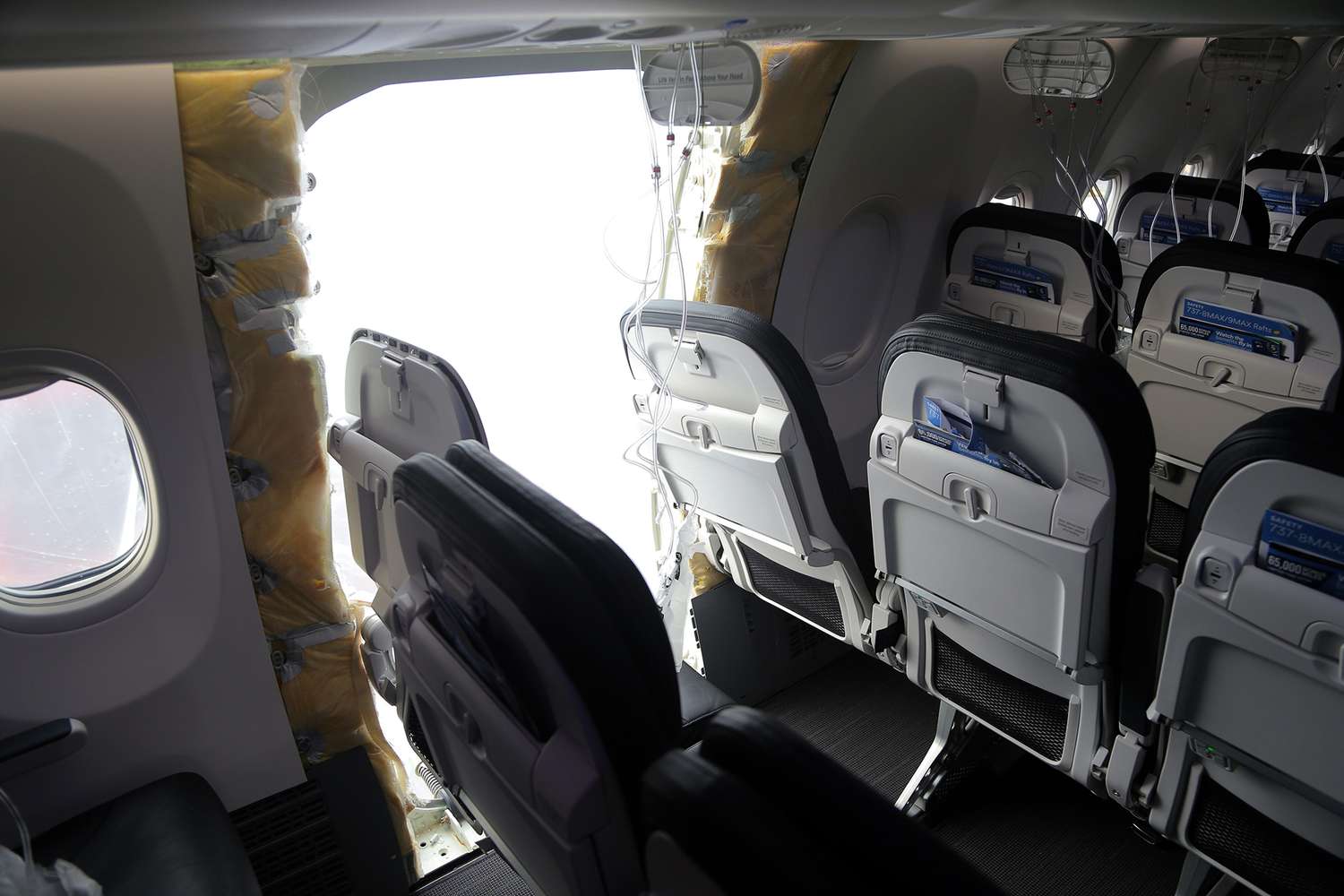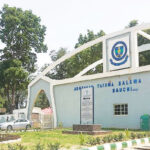
Alaska Airlines allowed a Boeing plane to continue flying despite warnings from its cabin pressurisation system, US investigators have said.
The National Transportation Safety Board, the primary accident investigator in the United States, revealed on Monday that warning lights were triggered on the recently delivered Boeing 737 Max 9 during three separate flights.
Two of these alarms occurred on consecutive days before the aircraft experienced a harrowing fuselage blowout on Friday, it said.
The NTSB disclosed that the airline decided to halt flights over the Pacific Ocean to Hawaii due to the warnings but continued flying the aircraft over land.
The incident unfolded on Friday, when a plug covering a designated spot for an emergency door tore off the Boeing 737 Max 9 as it soared 4,800 meters (16,000 feet) above Oregon.
The Chair of the NTSB, Jennifer Homendy said maintenance crews checked the plane and cleared it to fly, but the airline decided not to use it for the long route to Hawaii over water so that it “could return very quickly to an airport” if the warning light reappeared.
Friday’s flight was headed from Oregon to Southern California and made it back to Portland without serious injury to any of the 171 passengers and six crew members.
United Airlines and Alaska Airlines have said they found loose parts on multiple grounded Boeing 737 Max 9 aircraft, raising new concerns among industry experts about the manufacturing process for the passenger planes.
The Federal Aviation Administration (FAA), which regulates the industry in the United States, grounded 171 Max 9 planes worldwide after the incident, which forced the Alaskan pilots to make an emergency landing.
United Airlines said on Monday that it “found bolts that needed additional tightening”, in its initial inspections.
Boeing said it was staying in close contact with Max 9 operators and would help customers address any findings during the latest inspections.
“We are committed to ensuring every Boeing airplane meets design specifications and the highest safety and quality standards,” the US plane maker said. “We regret the impact this has had on our customers and their passengers.”





